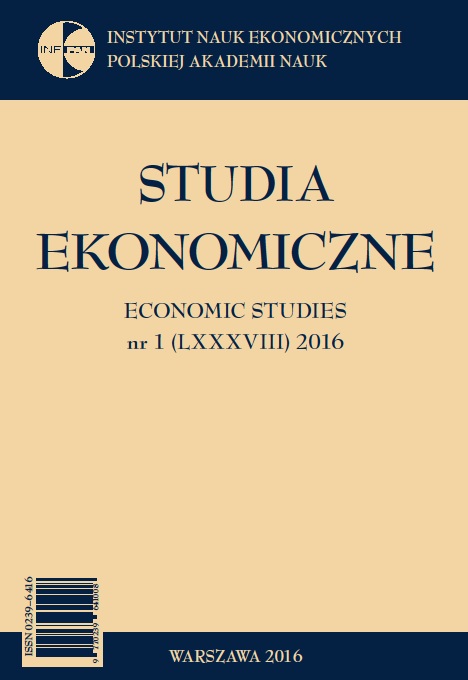Piketty i Marks o losach kapitalizmu
Piketty i Marx on the fate of capitalism
Author(s): Zbigniew MadejSubject(s): Economy, National Economy, Supranational / Global Economy, Marxist economics, Financial Markets, Public Finances
Published by: Instytut Nauk Ekonomicznych Polskiej Akademii Nauk
Keywords: Piketty vs Marx; fate of capitalism; imperative of accumulation and investment
Summary/Abstract: The aim of this paper is to demonstrate both similarities and differences between Piketty’s and Marx’s assessment of capitalism. The method applied is the comparison of the main theses included in Piketty’s “Capital” and Marx’s “Capital”. It has been determined that both authors perceive the imperative of accumulation and investment as a main treat of capitalism, but draw different conclusions. Marx argues that the aforementioned imperative causes the fall inthe rate of profits, which reinforces the struggle between capital and labor and leads to the outbreak of the revolution, which overturns the capitalism. Conversely, Piketty suggests that Marx came to such apocalyptic conclusions because he did not take into consideration – and neither did other XIX-century economists – the infl uence of technical progress and work efficiency on the national product growth. The first author to include this factor was Solow in the 1950s.It is worth noting, though, that Marx thoroughly described progress and efficiency, as well as differentiated between the technical progress stemming from investments in equipment, and the non-investment progress, stemming from improvement in workers’ skills. Solow and his followers left a rich and multidimensional body of work, however this multidimensionality demands specification, and Piketty does not precisely state which type of technical progress could prove beneficial to capitalism. It is therefore difficult to relate to his suggestions. Capitalism did not fall but it is not known which progress saved it and whether progress was the only, or just one of many saviors of capitalism. In the last part of the article various opinions are presented, however this problem remains un resolved, since no one provides a ready answer
Journal: Studia Ekonomiczne
- Issue Year: 2016
- Issue No: 2
- Page Range: 312-329
- Page Count: 18
- Language: Polish

